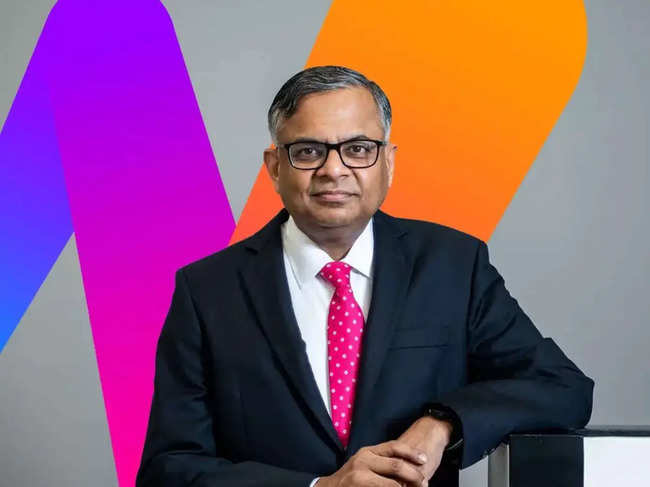
He was addressing the 27th annual general meeting of Tata Consultancy Services (TCS) virtually.
Elevate Your Tech Prowess with High-Value Skill Courses
| Offering College | Course | Website |
|---|
“The Russia/Ukraine crisis has imparted a stagflationary impulse. This has resulted in a dent in global growth, while further increasing inflation,” Chandrasekaran said. “We are also currently facing a supply shock from higher oil prices, semiconductor shortages, to name a few. As a result of many of these macro-economic factors, we are likely to face a low growth/ high inflation environment.”
Concerns over inflation and an impending recession have increased in recent months.
Global GDP is expected to grow at a slower pace of 3.4% in 2022, while inflation is expected to breach 7%.
Discover the stories of your interest

“The Indian market is extremely well placed for growth and the inflation in India will be lower than the Western countries and also with the regulators in India continuing to monitor this space,” he said.
On queries regarding the Digital India Act, Chandrasekaran said it was necessary “because so much has changed over the last couple of decades since the original IT Act was put in place. Glad that the government is engaged in developing a participative approach to the development of the Digital Act, especially since privacy and other aspects that will come into this act.”
TCS’ ability to stay relevant to customers has helped the IT services provider improve revenue per customer from $19.6 million in FY17 to $21.7 million in FY22, said TCS chief executive and managing director Rajesh Gopinathan.
“We believe that this (growth) will continue into the near future to be a major driver of technology transformation globally. Our core offering of outsourcing and both technology and business operations continues to stay relevant to our customer base as they seek both efficiency as well as to free up resources to focus on their transformation agendas and look for global scale and global talent to be able to deliver on their growth aspirations,” Gopinathan said.
Chandrasekaran said TCS has worked through the Covid-19 pandemic to find innovative ways to engage with the workforce including advice on mental health.
IT budgets in key markets such as the United States remains high, but the comparatively lower IT budgets in India means that while India’s revenue share will gradually move up from the current 5%, “ I don't see this number going to double digit for a long period to come,” he said.
On public sector projects, he added that TCS would continue to work with the government and look for opportunities to participate and develop mission-critical nationally important projects.
Noting that Tejas Networks was a separate equipment company acquired by the parent group, Chandrasekaran said that “TCS will have a partnership in implementation as a system integrator in some of these areas, and wherever there is a TCS IP that can be leveraged in joint go to market, we will explore that.”
The AGM was also filled with some lighter moments as shareholders congratulated Chandrasekaran for being awarded the Padma Bhushan as well as for the acquisition of Air India by the group.
Many also commented on the missed opportunity to meet board members in person, calling it a “Kolaveri Di” (disappointing moment) given that people (including Chandrasekaran) had been attending IPL matches in stadiums.
Chandrasekaran also highlighted trends across different areas like digital transition, energy transition, supply chain and talent transition which will be enormous opportunities for TCS.
He said TCS had a “satisfactory year of strong and profitable growth” with a 16.8% increase in consolidated revenue to cross the $25 billion revenue milestone.
TCS’ goals are to touch $50 billion in revenue over the next decade, he added.
“Areas such as renewable energy, battery storage, carbon capture, decarbonization, electronic waste management etc will generate many new opportunities. This will be a significant area for the company (TCS) for partnering with clients to help them achieve their sustainability objectives,” Chandrasekaran said.
















 Get Unlimited Access to The Economic Times
Get Unlimited Access to The Economic Times
